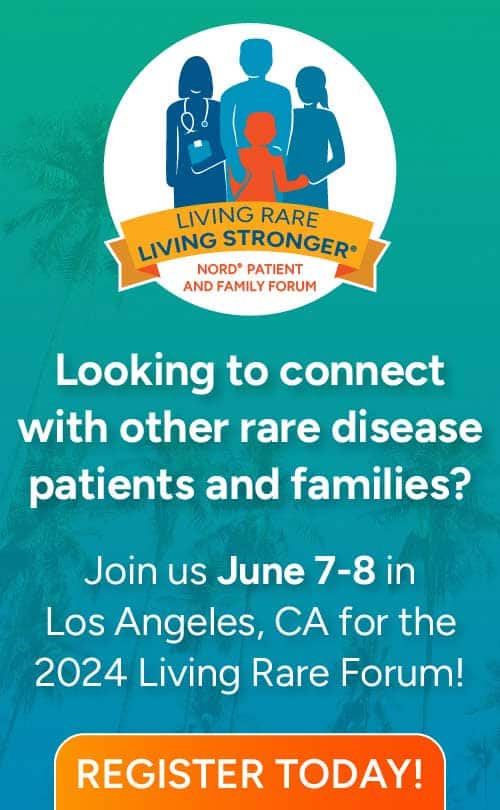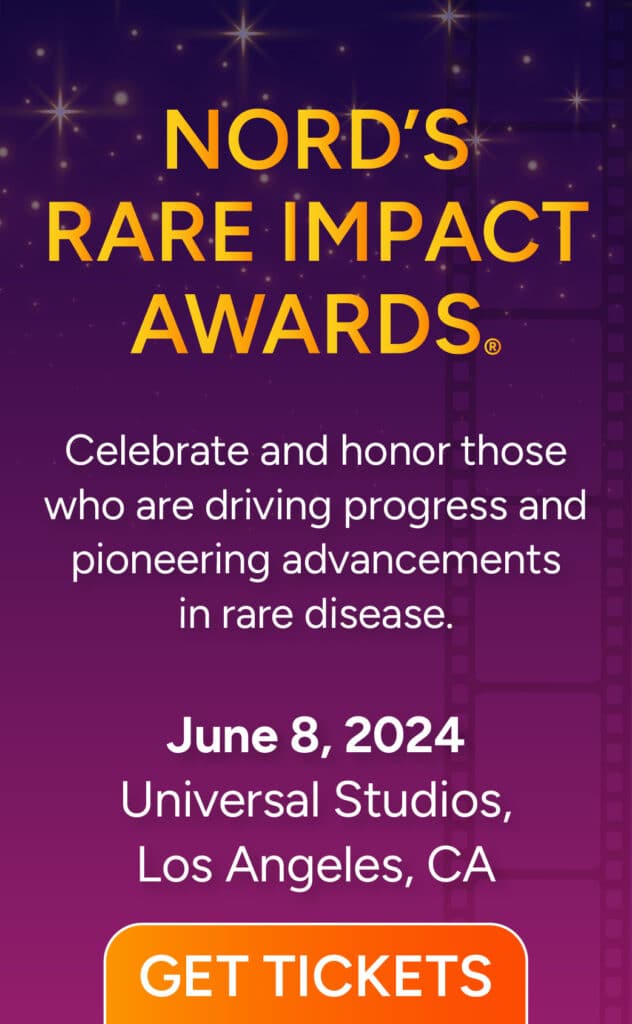Washington, D.C., July 25, 2017—As part of its ongoing series to promote awareness and education regarding rare diseases, the National Organization for Rare Disorders (NORD) has published a report on Retinal Vasculopathy with Cerebral Leukodystrophy (RVCL). This new resource is available free online to individuals around the world.
As the primary advocacy organization in the U.S. for people who have rare diseases, NORD provides educational resources for patients, caregivers and medical professionals. Disease-specific reports are developed in collaboration with NORD’s patient member organizations and independent medical experts. The reports can be accessed through NORD’s Rare Disease Database at rarediseases.org.
“People who have rare diseases often have difficulty finding accurate and easy to understand information about their condition,” said Marsha Lanes, MS, CGC, a genetic counselor and medical editor in NORD’s Educational Initiatives Department. “The purpose of NORD’s free Rare Disease Database reports is to provide information and resources to help those who may be dealing with little-known and misunderstood medical conditions.”
The report on RVCL was developed in collaboration with M. Kathryn Liszewski, PhD., Assistant Professor of Medicine and John P. Atkinson, MD, Samuel Grant Professor of Medicine and Molecular Microbiology, Division of Rheumatology, Department of Medicine, Washington University School of Medicine.
“Although only about 20 families worldwide have been diagnosed with RVCL, it’s likely that more families have this lethal disease because it is frequently misdiagnosed.” Dr. Atkinson said of the report, “More publicity about orphan diseases such as RVCL is key to increasing their worldwide recognition.”
RVCL is a rare genetic disease that causes progressive loss of tiny blood vessels, ultimately resulting in visual deterioration and a series of mini-strokes in the brain. Because of its rarity, this disease is often misdiagnosed as a brain tumor, multiple sclerosis, vasculitis or disease of unknown origin. This may lead to unnecessary and often hazardous diagnostic procedures such as multiple biopsies of the brain.
“We recently established the first international RVCL research center to study the disease and develop treatments,” Dr. Liszewski added, “We are inspired by our RVCL families to beat this fatal disease.”
NORD has published more than 1,200 disease-specific reports in its Rare Disease Database. The patient advocates who established NORD considered it a top priority to provide information about rare diseases for patients and their families. As a result, they began to develop the Rare Disease Database shortly after NORD was established in 1983. In the 1990s, when NORD launched a website, the database became available online. The reports are accessed by millions of visitors around the world each year.
“Our goal is to provide resources for every person with a rare disease, whether you are recently diagnosed or further along in your patient journey. We are thankful to both Dr. Atkinson and Dr. Liszewski for their assistance in developing this report.” added Lanes.
###
About the National Organization for Rare Disorders (NORD)®
The National Organization for Rare Disorders (NORD)® is the leading independent advocacy organization representing all patients and families affected by rare diseases. NORD is committed to the identification, treatment and cure of the 7,000 rare diseases that affect 30 million Americans, or 1 in every 10 people. NORD began as a small group of patient advocates that formed a coalition to unify and mobilize support to pass the Orphan Drug Act of 1983. For more than 30 years, NORD has led the way in voicing the needs of the rare disease community, driving supportive policies and education, advancing medical research, and providing patient and family services for those who need them most. NORD represents more than 260 disease-specific member organizations and their communities and collaborates with many other organizations in specific causes of importance to the rare disease patient community.
Media Contact:
Lisa Phelps
(203) 702-2872
lphelps@rarediseases.org



